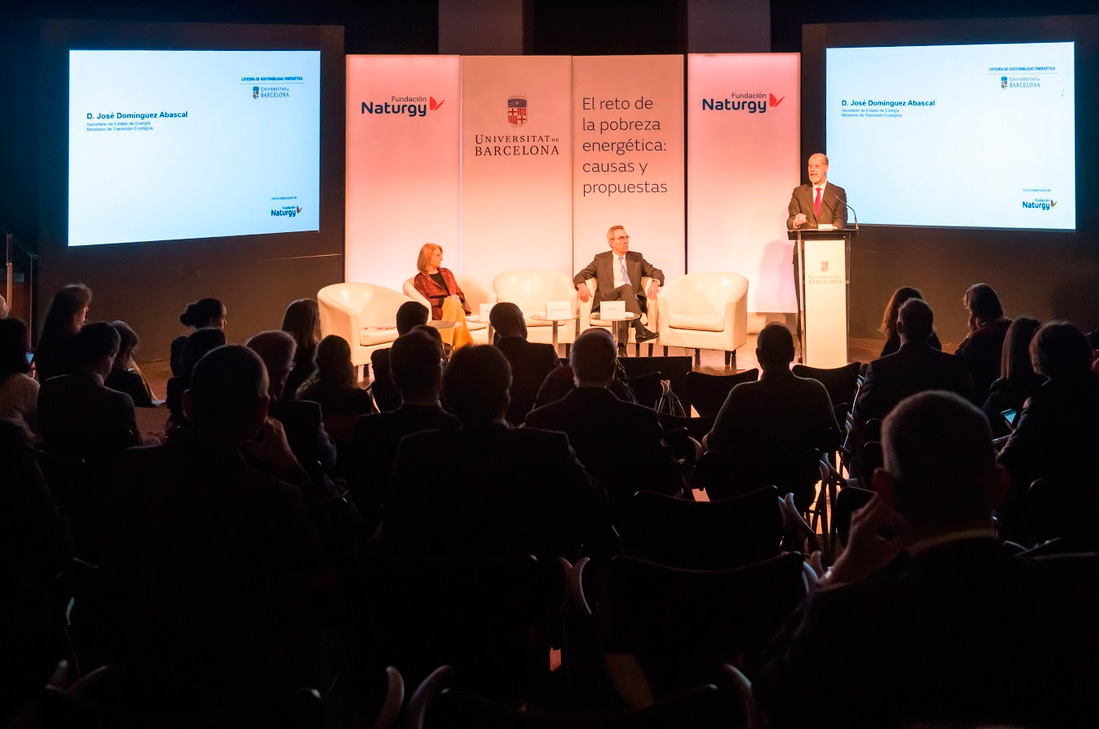The solution to energy poverty must include the close collaboration between authorities, social organisations and companies.
Today, Madrid held the “Challenge of energy poverty: causes and proposals” event where national and international experts analysed the measures being implemented to reduce energy poverty both globally and in Spain.
Oxford University professor, Brenda Boardman, said that to ease this situation “we must start with the houses in the poorest conditions, without imposing a cost on vulnerable families”.

Today, national and international experts concluded that the situation surrounding the energy poverty of 13 million people in Spain must include a comprehensive collaboration with a long-term perspective between authorities, social organisations and companies.
The event, which was organised by the Barcelona Institute of Economics (IEB-UB) in collaboration with the Naturgy Foundation, was opened by the Secretary of State of the Ministry of Ecological Transition, José Domínguez Abascal; professor of Economics at the Universitat de Barcelona and Chair of Energy Sustainability (IEB-UB), María Teresa Costa; and General Manager of the Naturgy Foundation, Martí Solà.
José Domínguez Abascal said, “this government has demonstrated a clear commitment from the start to the fight against energy poverty. Recent measures to extend and improve the subsidised rate are clear examples of this. But, we have more ambitious plans: we are already working on a national strategy to tackle energy poverty that we want to be ready by spring. It is a tool that will help us to understand the gravity of this social issue, the profile of vulnerable consumers and the effectiveness of current measures. From there, we will establish medium and long-term objectives with specific measures and financing routes.”
María Teresa Costa noted, “energy poverty is an increasingly relevant issue; socially, politically and for business as well. To be able to address this challenge it is essential that public authorities, alongside local organisations, consumer associations and energy companies, set out a comprehensive strategy to address this problem with a long-term perspective.”
Martí Solà said, “energy poverty affects thousands of families and requires all of us to work together: public authorities, social organisations and companies. If we work together we can take giant steps forward in tackling this problem.” “The Naturgy Foundation is demonstrating its experience with initiatives such as the Energy Volunteering Programme, the Energy School and the Energy Rehabilitation Solidarity Fund that we recently created,” stated Solà.
The Director of Energy Transition and Local Governance in the European Commission, Eero Ailio, closed the event with a speech about “Clean energy for all Europeans, from energy poverty perspective” in the context of the new energy laws that are about to be adopted by the European Union. Ailio said “the European Commission has proposed increased measures to evaluate, measure and tackle energy poverty to ensure that no citizens are left behind in the transition towards clean energy. The proposals have received limited support from European capitals.”
The main conference at the event was held by Oxford University professor and creator of the “Fuel Poverty” concept, Brenda Boardman, who provided an overview of the energy poverty issue. In her studies, Boardman includes the relationship between energy poverty and physical and mental health, regarding both the causes and the effects. In relation to the European Directive for energy efficiency in buildings, Boardman confirmed “we need a strategy for energy use in all buildings to meet the carbon reduction objectives. We should start with the houses in the poorest condition, without imposing any costs on vulnerable families.”
Share